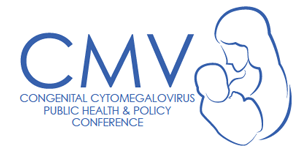Pre-Sessions
Sunday, September 25, 2016
Instructional Pre-Session #1 (10am-12pm):
Title: Biology of the CMV Virus
Presenter: Mark Schleiss PhD
Session Description
This session will be a simple, straightforward primer on the basic biology of the CMV virus including history of the virus, achievements in the study of the virus, genetic classification and gene expression. Additionally, the session will address gaps in the understanding of how the CMV virus instigates the immune response, which has important implications for development of vaccines and antiviral treatment. The session will inform the questions of transmission, pathogenesis, and prevention. Those who are predominately clinicians and allied health providers will appreciate the background information on the basic biology of the virus. The viral correlates of transmission and pathogenesis will be considered against the broader context of other congenital viral infections, including Zika virus. The format will be highly interactive with blocks of time for questions about: diagnosis (how do we identify or identify CMV infection? Prenatally? Postnatally?); how antiviral drugs and globulins work (what is the mechanism of action?); how does CMV "hide" from the immune system (what does this mean for vaccines? For re-infection during pregnancy?); and how newer methodologies are constantly being developed for CMV (how does this impact newborn screening?).
Learning Objectives:
- Describe the basic biology of the CMV virus and how its evolution impacts epidemiology.
- Understand the structure of the virus and how its proteins affect immunity and vaccine development.
- Explain viral immune evasion and recognize how it impacts re-infection.
Instructional Pre-Session #2 (1pm-3pm):
Title: Action Planning: Raising awareness of CMV through legislation and educational campaigns
Presenters: Sara Doutré MA and Alyson Ward M.S., IA, CHES
Session Description
Across the country, momentum is building to increase awareness of congenital cytomegalovirus (cCMV). Since 2013, six states have passed legislation (Utah, Connecticut, Hawaii, Illinois, Texas, and Tennessee) requiring cCMV education, cCMV testing for newborns who fail the newborn hearing screening, or both. Additionally, many more states are raising awareness about cCMV through educational campaigns without legislation. This active planning session is divided into three segments. Segment one, all attendees will meet together for 30 minutes to get an overview of legislation and educational campaigns. Segment two and three will be 45-minute, repeated breakout sessions that focus on action planning for legislation and educational campaigns. Specifically, in the legislative breakout, participants will be provided with an action planning template and other resources for pursuing cCMV legislative activity in their states. The session will focus on the pre-requisite relationship building and group thinking required for successful legislation and assist participants to identify key stakeholders in their states. In the educational campaign breakout, using a planning worksheet based on social marketing methodology, attendees will develop an educational campaign geared to increase awareness and prevention of cCMV. The campaign participants develop will include target audience, prevention messages, deliverables, and a dissemination plan. This hands-on session is important for anyone (e.g., public health workers, policy makers, clinicians, researchers and parents) wishing to increase awareness about cCMV through legislative or educational campaigns. Participants that are interested in working together are encouraged to attend with others from their state.
Learning Objectives:
- Identify stakeholders in your state essential for passing cCMV legislation and implementing educational campaigns.
- Develop appropriate cCMV prevention messages for identified target populations.
- Learn about existing resources available to help pass legislation and implement educational campaigns.
Instructional Pre-Session #3 (3pm-5pm):
Title: Developing a Hearing Targeted Early Cytomegalovirus Screening Program in Your Hospital or in Your State
Presenters: Angela Shoup, PhD; Kris Owen, Au.D.; Stephanie Browning McVicar, Au.D.; Albert Park, MD
Session Description
Despite the recognized adverse public health impact of congenital cytomegalovirus (c-CMV), there is no nationwide program to identify and treat infected newborns. Several hospital and state-based programs have implemented a hearing targeted early CMV screening (HT-CMV) approach to address this gap. Extrapolating data from the Utah state-wide program, approximately 1200 newborns could be diagnosed using this screening approach in the US annually. Experience at Parkland Hospital indicates that an estimated 5% of infants that do not pass the newborn hearing screening will test positive for c-CMV. Interestingly, some of these infants were found through diagnostic testing to have a conductive hearing loss. Although targeted c-CMV screening will certainly increase the opportunity to identify c-CMV early, unless the infant has sensorineural hearing loss, or refers on hearing screening due to transient conductive pathology, asymptomatic c-CMV infants may still be missed. Since success requires attention to the details and persistence in overcoming institutional inertia, the focus of this presentation will be a detailed summary of how we created our respective programs. This session will present our methods to overcome patient and provider apathy, high cost, and noncompliance.
Learning Objectives:
- Understand why early CMV detection is beneficial to your patients and to society.
- Learn how to identify potential allies to develop a HT-CMV program in your hospital, your state, or other governmental division.
- Develop strategies to overcome challenges for each obstacle encountered in creating a HT-CMV program.
